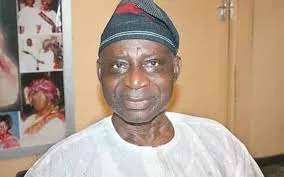Former director of research at the Central Bank of Nigeria (CBN), Dr. Titus Okunrounmu, has raised concerns about the ongoing policy of increasing the Monetary Policy Rate (MPR) by the bank’s Monetary Policy Committee (MPC), cautioning that it may impede economic growth.
Dr. Okunrounmu’s remarks came in response to the recent announcement by CBN Governor Olayemi Cardoso, disclosing an MPR hike from 22.75 per cent to 24.75 per cent following the MPC’s two-day meeting in Abuja.
The MPR, often referred to as the benchmark interest rate, serves as a pivotal tool for regulating lending rates in the economy. Alongside the MPR adjustment, Cardoso also revealed modifications to the Asymmetric Corridor and the retention of the Cash Reserve Ratio at 45 per cent.
Expressing skepticism about the effectiveness of such monetary tightening measures, Dr. Okunrounmu argued that while MPC decisions are rooted in data analysis, persistently raising the MPR could dissuade borrowing due to increased interest costs.
He posed critical questions about the feasibility of borrowing at a 25 per cent interest rate, suggesting that lowering rates would be more conducive to stimulating economic activity and growth.
Dr. Okunrounmu further called on the federal government to ensure prudent use of funds borrowed from the CBN, particularly for capital projects, given the heightened borrowing costs. Additionally, he urged intensified efforts in seeking alternative sources for power generation, highlighting the crucial role of stable electricity supply in driving productivity across various sectors.
Emphasizing the far-reaching impact of stable power supply, Dr. Okunrounmu pointed out its potential to boost domestic production, increase exports, generate foreign exchange, mitigate currency pressure, curb inflation, and stabilize the foreign exchange market.





